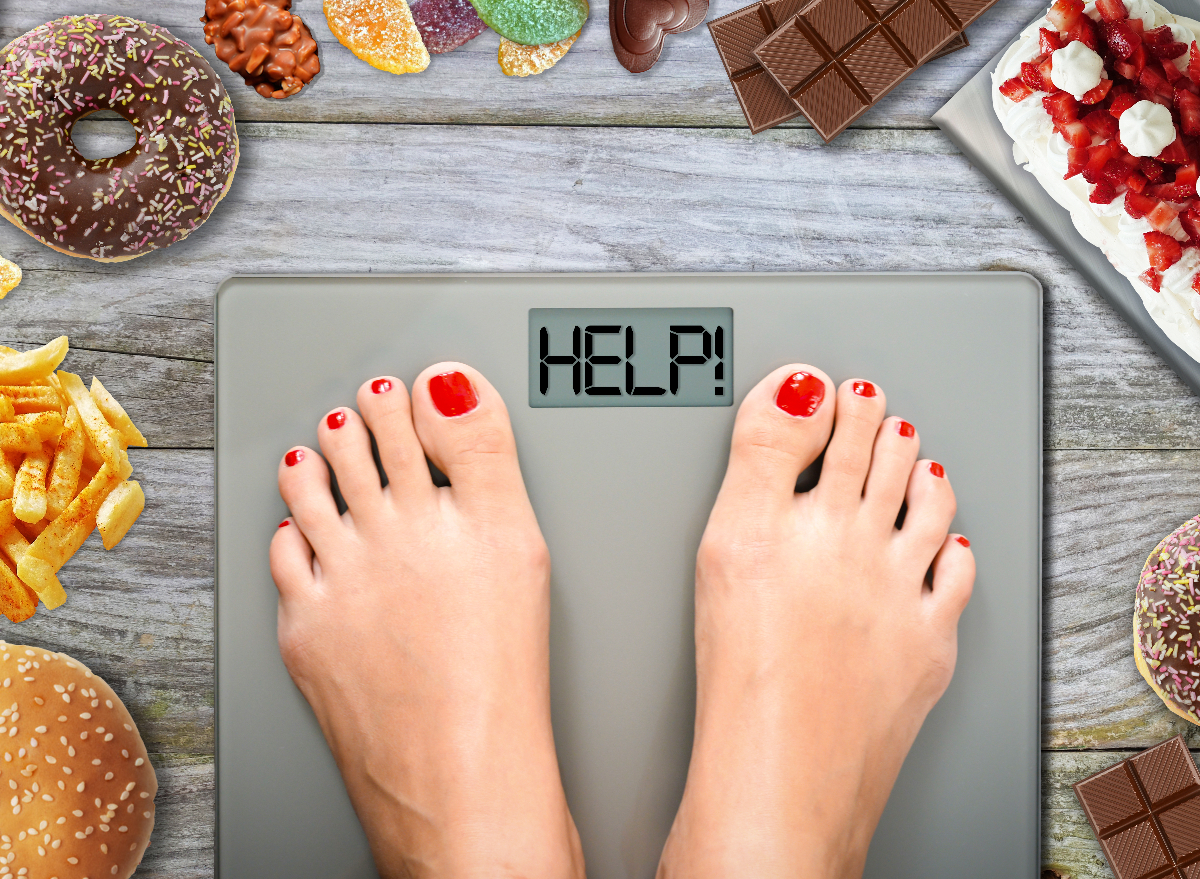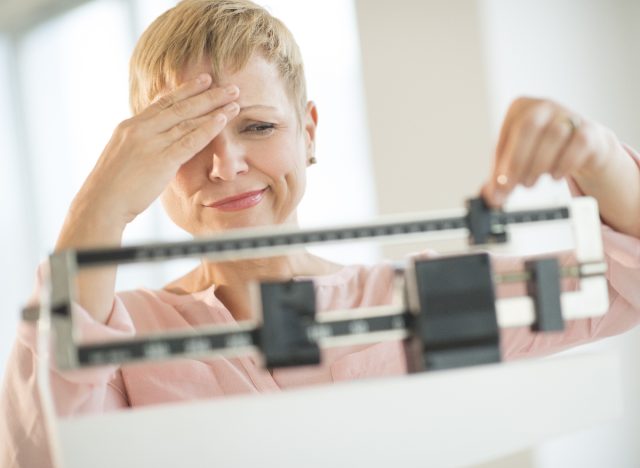The #1 Warning Sign You Don’t Exercise Enough, Say Experts

“Listen to your body” is one of the biggest truisms of the health and wellness world for good reason. Our stomach growls when we’re hungry, our mouth dries out when we’re thirsty, and our eyelids droop and we start to yawn when we’re tired. Apparently, our bodies are known to drop some major hints when we’re not getting the five-plus hours per week of exercise our bodies need to thrive.
The biggest and most common of these hints: persistent stiffness and soreness, says Justin Meissner, a NASM-certified trainer. “If you feel stiff or achey or even have a joint pain, that can oftentimes be from a lack of movement,” he says, especially if you don’t have an underlying health condition or injury that could contribute to those feelings.
Lisa Herrington, an ACSM certified personal trainer, fitness instructor, and founder of FIT House Davis, agrees. “Exercising creates soreness but so does sitting,” she says. When people are too sedentary, she says they’ll often feel an aching back or stiffness that lasts all day. “When we’re not moving enough, things just start to stick,” she says.
Stiffness and soreness are uncomfortable, but thankfully it’s easy to remedy those issues with—what else?—exercise. “Go out for a walk, take a hike, do some light strength training with a trainer,” recommends Meissener. “Any movement—as long as it’s safe movement—will have [a] positive effect.”
“If you’ve taken time off from exercising or if you’ve never exercised before, easing into it is the smartest way to start,” adds Herrington. (Read: Maybe don’t start with back-to-back HIIT classes.) She also recommends finding workouts that you enjoy and that support your everyday life activities “so that it becomes consistent and a part of your day that you enjoy.”
However, feeling sore and stiff isn’t the only signal that you should get more movement in your day. Curious about other signs that you should start exercising more? What follow are some of the most common, say Herrington and Meissener. And for some great ways to get moving again, check out the 5-Minute Fat-Melting Workout That’s the Best Way to Start Your Day.
Lethargy

Feeling sleepy all the time? You might need to work out more, says Herrington. “When you’re not getting the natural energy boost that exercise can give to you…there’s this feeling of just being tired all the time that sets in,” she says. Lack of exercise might also contribute to poor sleep quality, Meissner adds, which could make you feel even more tired all the time. And for more reasons to exercise more, see here for the Secret Side Effects of Walking Before Breakfast, Says Science.
Unexpected weight gain

Herrington says if you’re eating a consistent, balanced diet yet still notice that your body weight is increasing, that might be a sign that you’re not burning enough calories through movement each day. (Just note: Certain medications and health conditions can also contribute to weight gain, so be sure to rule those out with a medical professional.)
Poor posture

This is a sneaky one, but important. Your body relies on core and upper-body strength in order to maintain a healthy posture; without proper strength training, you might start to hunch over at the shoulders, says Herrington. Thankfully, this can be solved with consistent core work. Planks, anyone? And if you’re suffering from poor posture, don’t miss The 15-Second Exercise Trick That Can Change Your Life, Says Science.
Trouble doing everyday tasks

Think about the things you do regularly every day, like carrying groceries, opening jars, or sitting and standing. If you are an otherwise healthy person but struggle to do those activities without getting tired, sore, or winded quickly, Herrington says you should work more on your strength training regimen. “Strength training is super important, not just for muscular strength to protect your joints and our bones and our muscles. It’s also important just to keep us healthy and strong for things that we do every single day,” she says. And for more on exercising every day, see why This Super-Quick Workout Is Scientifically Proven to Work, Says The Mayo Clinic.








